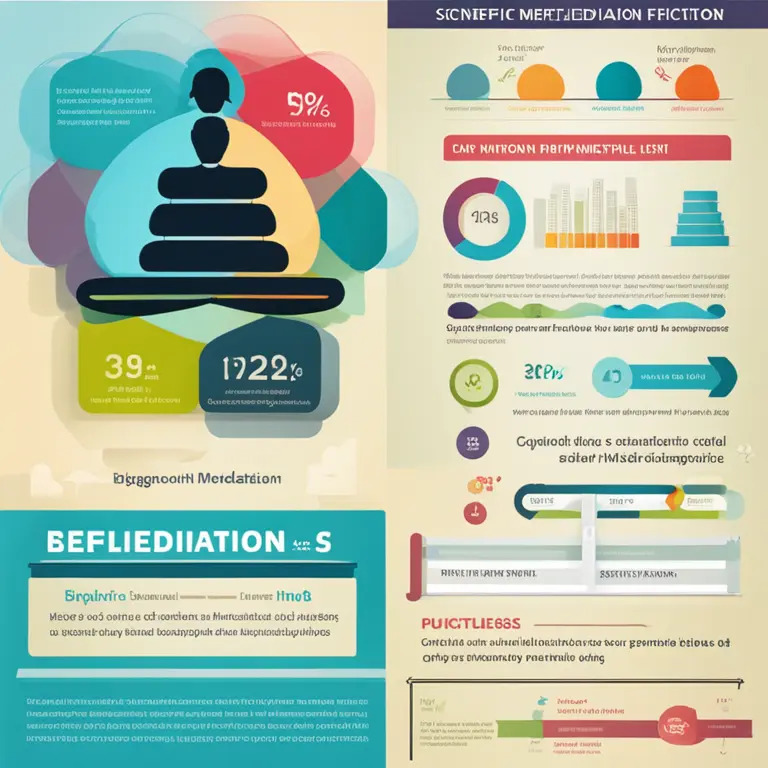
Meditation and Mindfulness: Do They Sync?
Delve into the connection between meditation and mindfulness. Learn how a mindful practice can influence your mental clarity, emotional balance, and overall wellbeing.
article by Hina Kurosawa
The Essence of Mindfulness
Meditation has ascended as a beacon of peace in the chaos of modern living. It is a practice deeply rooted in various cultures and philosophies, yet its essence lies in the simple act of presence. Mindfulness, a core component of meditation, is the mental state achieved by focusing one's awareness on the present moment. It encourages an acknowledgment and acceptance of one's feelings, thoughts, and bodily sensations. The burgeoning interest in mindfulness reflects a society yearning for a respite from relentless stress and information overload. This surge propels us to question the efficacy of meditation as a conduit for true mindfulness.

A Scientific Lens on Meditation
Research in the realms of psychology and neuroscience has put meditation under rigorous scrutiny. Studies underscore its potential to rewire the brain, enhancing areas responsible for concentration and emotional regulation while diminishing reactivity. The brain's plasticity allows mindfulness meditation to foster connections in the prefrontal cortex, dampening the amygdala's stress responses. As of 2024, data gleaned from EEG and fMRI scans provide tangible evidence that consistent meditation practice has the potential to yield long-term benefits for mental health and cognitive functions.

Meditation as a Mindfulness Tool
Meditation serves as a vehicle for achieving mindfulness, guiding practitioners to a serene mental harbour. Various forms of meditation, such as Vipassana, Zen, and mindfulness-based stress reduction (MBSR), have been crafted to cultivate an attentive and nonjudgmental awareness of the present. As individuals engage in these practices, they often report heightened levels of focus and a newfound ability to handle emotional turbulence. The journey towards mindfulness through meditation is one of patience and persistence, but anecdotal and empirical evidence suggest the destination is worth the investment.

The Tangible Benefits of Meditation
Engaging in meditation unlocks a myriad of individual benefits that transcend mental borders to influence physical health. Reduced stress levels, decreased anxiety, improved sleep patterns, and a bolstered immune system are among the reported advantages. Furthermore, the practice encourages a more profound connection with the self, promoting greater empathy and compassion towards others. The ripple effects of a regular meditation routine can profoundly impact one's quality of life, making the argument for its integration into daily habits compelling.

Challenges to Mindfulness Practice
Despite its apparent benefits, meditation is not a panacea for all. Critics point out the challenges in measuring the subjective experience of mindfulness and the variability in individual responses to meditation. Detractors claim a 'mindfulness trend' has perhaps overstated the practice's benefits, overlooking that not every individual will experience the same level of improvement. From overcoming initial frustrations to battling the misconceptions about meditation, embracing it as a practical tool for mindfulness requires a balance between enthusiasm and realistic expectations.
Future Outlook for Meditation and Mindfulness
As we embark further into the 2020s, the integration of meditation into health and wellness models continues to accelerate. Wearable technology, virtual reality, and apps are evolving to support meditation practices, making accessibility less of an obstacle than in years past. The confluence of science, technology, and age-old wisdom paints an optimistic future for those seeking solace through meditation. As individuals and communities embrace these practices, mindfulness has the potential to become a cornerstone of a more conscious and connected society.
Published: 1/18/2024
Modified: 1/18/2024
More predictions
Come back here soon to learn more about yourself and your future


Easing Anxiety Through Mindful Meditation
Discover how mindful meditation can be a serene gateway to relieving anxiety, fostering a peaceful mind, and promoting overall well-being.


Can Meditation Impact On Depression?
Meditation can be a powerful tool for mental health. Discover whether incorporating a meditation practice can alleviate depressive symptoms.


Best Meditation Techniques for Brain Health
Discover effective meditation practices to enhance cognitive functions and maintain a healthy brain.